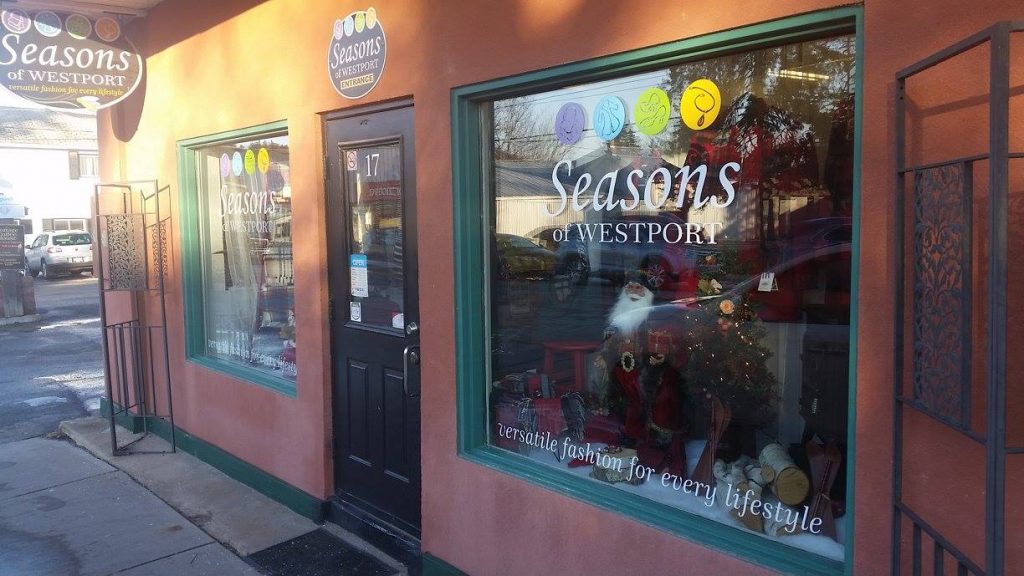
Seasons of Westport invests in digital confidence
The village of Westport has always benefitted from swarms of Americans seeking to capitalize on the exchange rate while they vacation at the head of the navigable Rideau Canal. But the summer of 2020 seemed to promise something different for businesses like Seasons of Westport, Lori Reynen’s women fashion and accessory shop.
“We thought last year would be really disastrous with the Americans not being able to come,” says Reynen. “We certainly missed them and business definitely wasn’t the same, but because (Canadians) couldn’t travel places, a lot of them were taking day trips… exploring little towns and doing things that they had never done before.”
For Seasons of Westport, the influx of domestic adventure-seekers helped soften the blow of what would be a challenging year for the main street there. Of course, Reynen says the charm of Westport is undeniable. It was a charm that initially drew the shop owner and her husband to settle in the community.
“My husband and I lived in Cornwall pretty well all our careers and had boated through Westport every year on the Rideau Run,” says Reynen, a retired nurse. They seemed to stay a little longer every trip, tacking on extra days, which ultimately led to them retiring there. They bought a small bulk food business and turned it into a shop selling local products and in 2017, the owner of Seasons of Westport approached Reynen about taking over the business.
“She had opened the store eight years prior to that and it was very successful,” says Reynen. She took on the new challenge, adding her own touch to the business over the next few years. But COVID-19 brought with it a promise of disruption to the current state of main street businesses, and Reynen found herself facing the daunting task of building a completely new, tech-driven toolkit, for keeping the business active through lockdowns.
“I’m really not very technical with computers,” says Reynen. She had someone do the website for Seasons of Westport, but she also recognized that meant she would be relying on that person for anything website-related. “That’s expensive when you have to pay someone to do everything for you,” she says.
Through her BIA she heard about Digital Main Street, a program combining grants and one-to-one support from the Province of Ontario and alongside partners like Google to help main street businesses strengthen their online capabilities and plan for the digital future. At first, it didn’t feel like the right fit. “I didn’t really think I have the capacity to learn to do it all myself,” says Reynen.
But after weathering the first summer of the pandemic and watching how comparable businesses in other places like Kingston responded in the Fall of 2020 to the pandemic by upping their digital presence, Reynen reconsidered. She applied for the $2,500 Digital Transformation Grant and spent the lockdown of January and February 2021 attending virtual seminars and working through the Digital Main Street modules while she formulated a strategy of her own.
“When the store reopened, I got busy getting new things in and I sort of backtracked,” she says. But she found her way back on track. The grant opened her up to one-to-one training and through that, Reynen learned how to manage her website entirely on her own. She also leveraged support from the ShopHERE program, a Google-supported initiative to help independent businesses build online stores for free. “It has been so beneficial for me and my business and has really saved me so much money just in being able to do it myself and having the confidence.”
Reynen says she knows this is just the beginning. “I haven't quite gotten into the groove of social media and posting often,” she says. But she says her goal is to build out her Facebook presence and online store.
“Had I not signed up and applied for the Digital Transformation Grant, I would never be where I am today because I would never have had the confidence to try and do anything,” she says. “I’m quite proud of myself (and) what I've done so far – I still have a lot I want to do, but I feel a lot more in control of what's going on.”
Written by Andrew Seale
Digital Main Street a été créé par la Toronto Association of Business Improvement Areas (TABIA) avec le soutien direct de la Ville de Toronto. DMS est également soutenu par un groupe de partenaires commerciaux stratégiques, dont Google, Mastercard, Shopify, Meta, Intuit QuickBooks, Square, Lightspeed, Ebay et Postes Canada.
L'investissement continu de la province de l'Ontario, par l'intermédiaire du Ministère du Développement économique, de la Création d’emplois et du Commerce (MEDJCT), a permis l'expansion continue de la plateforme numérique de la rue principale afin de soutenir davantage d'entreprises qui passent au numérique dans tout l'Ontario.
